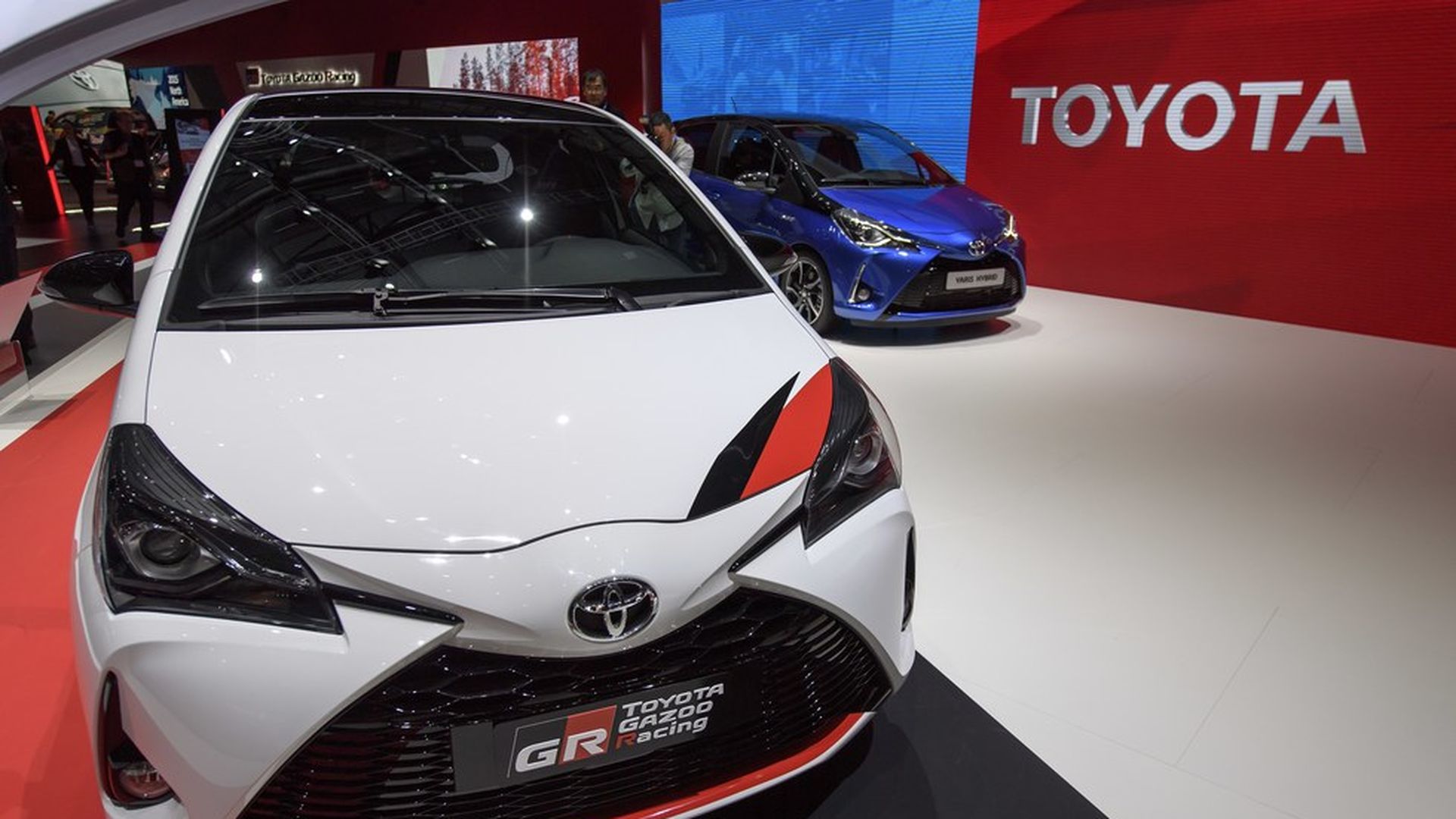Mar 14, 2017 - Technology
Toyota sees ridesharing as key to self-driving car adoption
Add Axios as your preferred source to
see more of our stories on Google.

Martial Trezzini/Keystone via AP
Add Axios as your preferred source to
see more of our stories on Google.

Martial Trezzini/Keystone via AP